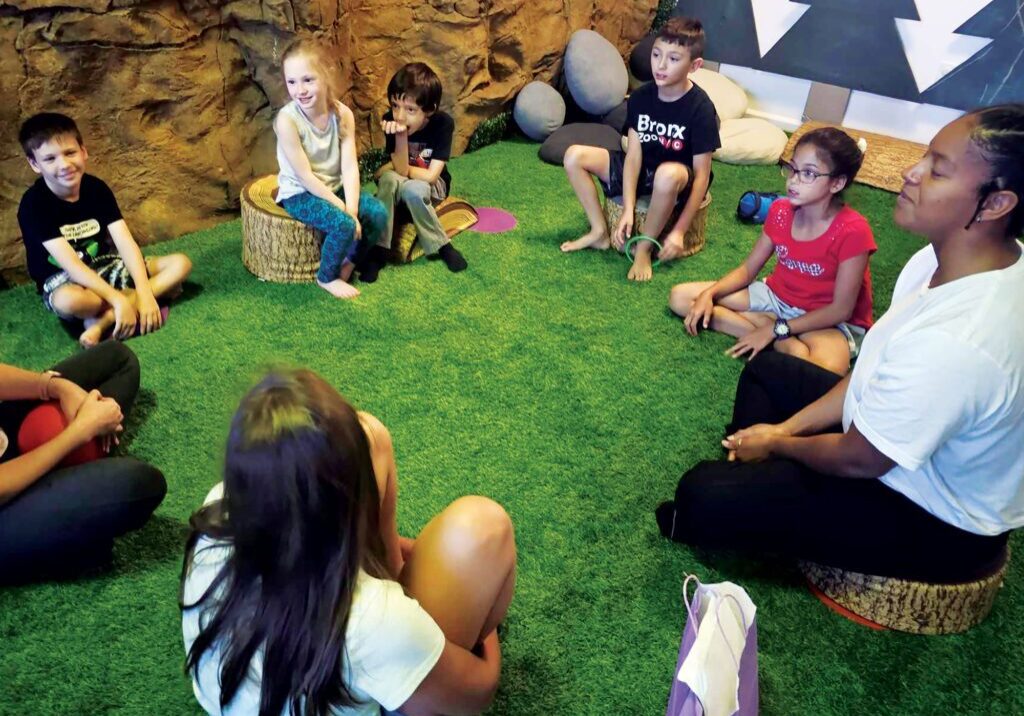Homeschooling a child with special needs
Teaching a child with special needs at home can seem overwhelming, whether it’s assisting them with their virtual classroom, helping with independent studies or trying to maintain some semblance of a routine. As involved as parents are with their children’s education, most parents are not trained in special education. With a few exceptions, parents also are not experts in speech pathology, occupational, physical or behavioral therapy. Most children with special needs get most of their Individualized Education Plan (IEP) services at school. When those services were abruptly halted last spring, parents were rightfully worried about regression and loss of the structured routine that many of their kids thrive on.
Now, parents are weighing those concerns against sending their child back into the classroom during a pandemic. Many students in the special education classes are medically fragile and at high risk of complications if they were to contract COVID-19. A lot of parents in this situation are choosing to keep their children home for safety reasons.
Homeschooling options
In most California school districts, the options for parents to homeschool their children would be through independent study or distance learning. There are many reasons parents of children of special needs would make this choice. Aside from the safety concerns of on-campus education, consistency of services provided by the school may not be guaranteed during these erratic times. Additionally, many children with special needs do not do well with a virtual, distance learning model.
Another choice is to pull children out of public school and homeschool privately. The downside to privately homeschooling is that students would lose IEP services through their district, and parents would need to find education providers and pay out of pocket. They would also have to purchase their curriculum. Advantages include having a wider choice of providers and more flexibility with learning materials.
Research and be aware of your rights
Before parents decide, they should research and understand the options available to them and be aware of their rights under California and federal law. All children are entitled to a free and appropriate public education (FAPE). Schools are required to have special concessions and specialized learning options available to them if the school district determines that they are eligible for special education services. This educational entitlement also applies if a child attends a public charter school.
Homeschooling in a private school
Private schools operate a little differently. Special education students attending private schools are also guaranteed special education services. However, they are not guaranteed or allowed any additional services as compared to children attending public schools. Choosing private education means relinquishing the free and appropriate public education.
To homeschool privately in California, the law requires parents to file an affidavit with the California Department of Education (CDE). The affidavit is on the CDE website. Be sure to print a copy of the confirmation page after submitting the affidavit.
Be flexible – don’t try to replicte the classroom
Homeschooling a child with special needs can seem daunting. Jamie Heston, a homeschooling parent and board member of the Homeschool Association of California, offers advice to make the transition smoother. “Don’t try to replicate the classroom,” she says. There will always be a period of adjustment, and it’s essential to be flexible. “When there’s resistance, take a break and do something different,” she adds. “Don’t just push through because the child probably is not learning in that moment.”
Jamie also stresses the need to think outside the box when engaging a child for learning, as each has different learning styles. “For example, a child could be bouncing on a ball while I read to them. You couldn’t do that in a classroom with 30 students. So, that’s a positive.”
Here are some resources to help with homeschooling a child with special needs:
For more information about Homeschooling in California
- Homeschool Association of California
- California Department of Education- Private School Affidavit
- Private School Filing Instructions
- Special Education Toolbox
- The Ultimate Guide to Homeschooling Special Needs
- Homeschool Legal Defense Association
- Homeschooling in California- Special Needs Resources
- Online Facebook Support Group for Homeschooling Special Needs
- Time4Learning- Resources and Information on Homeschooling children with Special Needs
Posted in: Special Needs
Comment Policy: All viewpoints are welcome, but comments should remain relevant. Personal attacks, profanity, and aggressive behavior are not allowed. No spam, advertising, or promoting of products/services. Please, only use your real name and limit the amount of links submitted in your comment.
You Might Also Like...

Fostering a More Inclusive Community: Special Olympics of Northern California
The Special Olympics, founded by Eunice Kennedy Shriver in 1968, is an organization that serves millions of athletes in over 190 countries, promoting inclusivity, empowerment and community engagement. Here in […]

Halloween Tips for Families of Children with Diverse Abilities
Although Halloween can be a fun time for kids of all abilities, it often can be overwhelming for children with special needs. They may have trouble with the loud noises, […]

Parental Advocacy and a Supportive School Environment Set the Stage for Success
When raising a child with special needs, advocacy becomes second nature. It starts with speaking up for your child’s needs at home and then expands to schools, doctor’s offices and […]

Sensory Innovations: Empowering All Ages Through Play and Occupational Therapy
Sensory play, occupational therapy and physical therapy are essential for fostering critical skills such as motor development, cognitive function and social interaction. Sensory play can reduce stress, improve focus and […]




